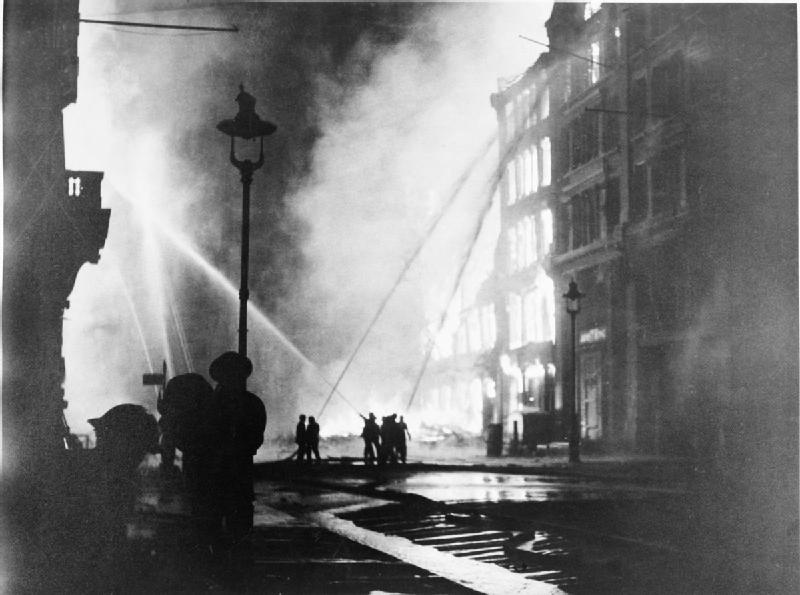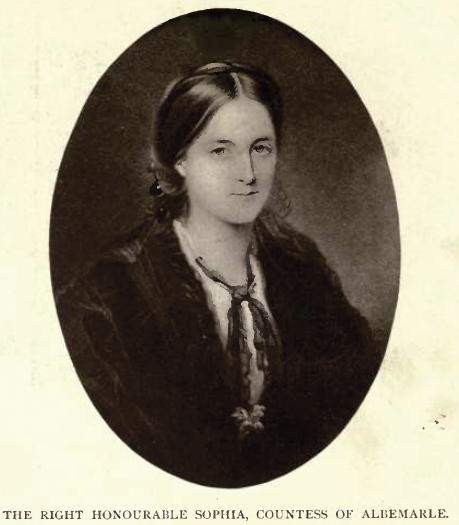|
Royal Colonial Society
The Royal Commonwealth Society (RCS) is a non-governmental organisation with a mission to promote the value of the Commonwealth and the values upon which it is based. The Society upholds the values of the Commonwealth Charter, promoting conflict resolution, peace-making and democracy to improve the lives of citizens across the member states of the Commonwealth. History 1868–1958 What is now the Royal Commonwealth Society was founded in 1868 as a non-political, learned organisation. A royal charter was granted in 1869, and a clubhouse opened in 1885. The Society's name slowly evolved – from The Colonial Society (1868–1869), to The Royal Colonial Society (1869–1870), to The Royal Colonial Institute (1870–1928), to The Royal Empire Society (1928–1958). The Royal Commonwealth Society was the name adopted in 1958. The Society may be seen from early on to have been progressive in its time towards equality and diversity. A woman was first invited by The Royal Colon ... [...More Info...] [...Related Items...] OR: [Wikipedia] [Google] [Baidu] |
Non-governmental Organisation
A non-governmental organization (NGO) is an independent, typically nonprofit organization that operates outside government control, though it may get a significant percentage of its funding from government or corporate sources. NGOs often focus on humanitarian or social issues but can also include clubs and associations offering services to members. Some NGOs, like the World Economic Forum, may also act as lobby groups for corporations. Unlike international organizations (IOs), which directly interact with sovereign states and governments, NGOs are independent from them. The term as it is used today was first introduced in Article 71 of the UN Charter, Article 71 of the newly formed United Nations Charter in 1945. While there is no fixed or formal definition for what NGOs are, they are generally defined as nonprofit entities that are independent of governmental influence—although they may receive government funding. According to the United Nations Department of Global Communic ... [...More Info...] [...Related Items...] OR: [Wikipedia] [Google] [Baidu] |
Progressivism
Progressivism is a Left-right political spectrum, left-leaning political philosophy and Reformism, reform political movement, movement that seeks to advance the human condition through social reform. Adherents hold that progressivism has universal application and endeavor to spread this idea to human societies everywhere. Progressivism arose during the Age of Enlightenment out of the belief that civility in Europe was improving due to the application of new Empirical evidence, empirical knowledge.Harold Mah''Enlightenment Phantasies: Cultural Identity in France and Germany, 1750–1914'' Cornell University. (2003). p. 157. In modern political discourse, progressivism is often associated with social liberalism, a left-leaning type of liberalism, and social democracy. Within economic progressivism, there is some ideological variety on the social liberal to social democrat continuum, as well as occasionally some variance on cultural issues; examples of this include some Christian ... [...More Info...] [...Related Items...] OR: [Wikipedia] [Google] [Baidu] |
Joseph Sylvester O'Halloran
Joseph Sylvester O'Halloran, (28 March 1842 – 29 January 1920) was Secretary of the Royal Commonwealth Society, Royal Colonial Institute 1883 to 1909. Career in Australia O'Halloran was born at Adelaide, South Australia, was the son of Captain William Littlejohn O'Halloran and his wife Eliza Minton O'Halloran. He was educated at private schools, and entered the South Australian Civil Service, receiving his first appointment from Richard Graves MacDonnell, Sir Richard Graves MacDonnell, the then Governor. After passing ten years in the Audit Office, and rising to the third position in that department, he was promoted to the clerkship of the Executive Council, being at the same time gazetted Clerk to the Court of Appeals. These offices he retained until 1871, and, in addition, acted for a while as private secretary to the Right Hon. Sir James Fergusson, 6th Baronet, Governor of the colony. In consequence of certain reductions in the estimates, which involved several departmental ... [...More Info...] [...Related Items...] OR: [Wikipedia] [Google] [Baidu] |
Cambridge University Press
Cambridge University Press was the university press of the University of Cambridge. Granted a letters patent by King Henry VIII in 1534, it was the oldest university press in the world. Cambridge University Press merged with Cambridge Assessment to form Cambridge University Press and Assessment under Queen Elizabeth II's approval in August 2021. With a global sales presence, publishing hubs, and offices in more than 40 countries, it published over 50,000 titles by authors from over 100 countries. Its publications include more than 420 academic journals, monographs, reference works, school and university textbooks, and English language teaching and learning publications. It also published Bibles, runs a bookshop in Cambridge, sells through Amazon, and has a conference venues business in Cambridge at the Pitt Building and the Sir Geoffrey Cass Sports and Social Centre. It also served as the King's Printer. Cambridge University Press, as part of the University of Cambridge, was a ... [...More Info...] [...Related Items...] OR: [Wikipedia] [Google] [Baidu] |
William Keppel, 7th Earl Of Albemarle
Lieutenant-Colonel William Coutts Keppel, 7th Earl of Albemarle, , MP, ADC (15 April 1832 - 28 August 1894), styled Viscount Bury between 1851 and 1891, was a British soldier and politician. He served in the British Army before entering Parliament in 1857. Initially a Liberal, he served as Treasurer of the Household between 1859 and 1866 in the Liberal administrations headed by Lord Palmerston and Lord Russell. He later switched to the Conservatives and held office as Under-Secretary of State for War under Lord Beaconsfield between 1878 and 1880 and under Lord Salisbury between 1885 and 1886. Lord Albemarle was sixth in direct line of descent from King Charles II, and he was the great-great-grandfather of Queen Camilla. Early life Keppel was born in London, England on 15 April 1832. He was the only son of General George Keppel, 6th Earl of Albemarle, by his wife Susan Coutts Trotter, daughter of Sir Coutts Trotter, 1st Baronet of Westville. He was educated at Eton. ... [...More Info...] [...Related Items...] OR: [Wikipedia] [Google] [Baidu] |
Chichester Parkinson-Fortescue, 1st Baron Carlingford
Chichester Samuel Parkinson-Fortescue, 2nd Baron Clermont and 1st Baron Carlingford (18 January 1823 – 30 January 1898), known as Chichester Fortescue until 1863 and as Chichester Parkinson-Fortescue between 1863 and 1874 and Lord Carlingford after 1874, was a British Liberal politician of the 19th century. Background and education Born Chichester Fortescue, Carlingford was the son of Chichester Fortescue (died 1826), Member of Parliament for Hillsborough in the Irish Parliament. He came of an old Anglo-Irish family settled in Ireland since the days of Sir Faithful Fortescue (1581–1666), whose uncle, The 1st Baron Chichester, was Lord Deputy. The history of the family was written by his elder brother, Thomas Fortescue, who in 1852 was created Baron Clermont. His mother was Martha Angel, daughter of Samuel Meade Hobson. The future Lord Carlingford was educated at Christ Church, Oxford, where he took a first in Classics (1844) and won the chancellor's English essa ... [...More Info...] [...Related Items...] OR: [Wikipedia] [Google] [Baidu] |
Library
A library is a collection of Book, books, and possibly other Document, materials and Media (communication), media, that is accessible for use by its members and members of allied institutions. Libraries provide physical (hard copies) or electronic media, digital (soft copies) materials, and may be a physical location, a virtual space, or both. A library's collection normally includes printed materials which may be borrowed, and usually also includes a reference section of publications which may only be utilized inside the premises. Resources such as commercial releases of films, television programmes, other video recordings, radio, music and audio recordings may be available in many formats. These include DVDs, Blu-rays, CDs, Cassette tape, cassettes, or other applicable formats such as microform. They may also provide access to information, music or other content held on bibliographic databases. In addition, some libraries offer Library makerspace, creation stations for wiktionar ... [...More Info...] [...Related Items...] OR: [Wikipedia] [Google] [Baidu] |
The Contemporary Review
''The Contemporary Review'' is a British biannual, formerly quarterly, magazine. It has an uncertain future as of 2013. History The magazine was established in 1866 by Alexander Strahan and a group of intellectuals intent on promoting their views on current affairs. They intended it to be the church-minded counterpart and in May 1877 published an article on the "Ethics of Belief" from a distinguished Cambridge don on moral skepticism in law and philosophy. Prof Clifford developed scientific theories on metaphysical beliefs, rationalism, and the empirical value of scientific enquiry that underpinned advanced physics. By the end of the century his views had a practicable impact upon new social realism. Clifford was quickly rebutted by Prof Wase in June 1877. Articles by Rev R.F. Littledale, a regular contributor included "Christianity and Patriotism".Contemporary Review (1877), vol. 30, contents This contrasted to the radical artistic perspectives of the '' Fortnightly Revi ... [...More Info...] [...Related Items...] OR: [Wikipedia] [Google] [Baidu] |
Gold Coast (British Colony)
The Gold Coast was a British Empire, British Crown colony on the Gulf of Guinea in West Africa from 1821 until its independence in 1957 as Ghana. The term Gold Coast is also often used to describe all of the four separate jurisdictions that were under the administration of the Governor of the Gold Coast. These were the Gold Coast itself, Ashanti (Crown Colony), Ashanti, the Northern Territories of the Gold Coast, Northern Territories protectorate and the British Togoland, British Togoland trust territory. The first European explorers to arrive at the coast were the Portuguese in 1471. They encountered a variety of African kingdoms, some of which controlled substantial deposits of gold in the soil. In 1483, the Portuguese came to the continent for increased trade. They built the Castle of Elmina, the first European settlement on the Gold Coast. From here they acquired slavery, slaves and gold in trade for European goods, such as metal knives, beads, mirrors, rum, and guns. News ... [...More Info...] [...Related Items...] OR: [Wikipedia] [Google] [Baidu] |
Samuel Bannerman
Samuel is a figure who, in the narratives of the Hebrew Bible, plays a key role in the transition from the biblical judges to the United Kingdom of Israel under Saul, and again in the monarchy's transition from Saul to David. He is venerated as a prophet in Judaism, Christianity, and Islam. In addition to his role in the Bible, Samuel is mentioned in Jewish rabbinical literature, in the Christian New Testament, and in the second chapter of the Quran (although the text does not mention him by name). He is also treated in the fifth through seventh books of ''Antiquities of the Jews'', written by the Jewish scholar Josephus in the first century. He is first called "the Seer" in 1 Samuel 9:9. Biblical account Family Samuel's mother was Hannah and his father was Elkanah. Elkanah lived at Ramathaim in the district of Zuph. His genealogy is also found in a pedigree of the Kohathites (1 Chronicles 6:3–15) and in that of Heman the Ezrahite, apparently his grandson (1 Chronicles 6 ... [...More Info...] [...Related Items...] OR: [Wikipedia] [Google] [Baidu] |
Fellow
A fellow is a title and form of address for distinguished, learned, or skilled individuals in academia, medicine, research, and industry. The exact meaning of the term differs in each field. In learned society, learned or professional society, professional societies, the term refers to a privileged member who is specially elected in recognition of their work and achievements. Within institutions of higher education, a fellow is a member of a highly ranked group of teachers at a particular college or university or a member of the governing body in some universities. It can also be a specially selected postgraduate student who has been appointed to a post (called a fellowship) granting a stipend, research facilities and other privileges for a fixed period (usually one year or more) in order to undertake some advanced study or research, often in return for teaching services. In the context of medical education in North America, a fellow is a physician who is undergoing a supervised, ... [...More Info...] [...Related Items...] OR: [Wikipedia] [Google] [Baidu] |





